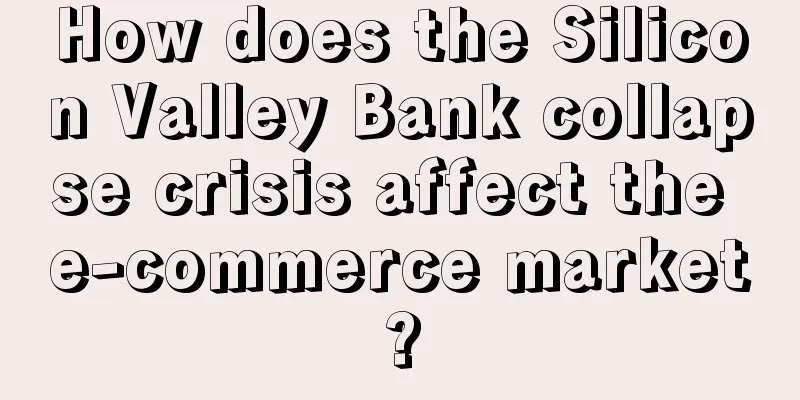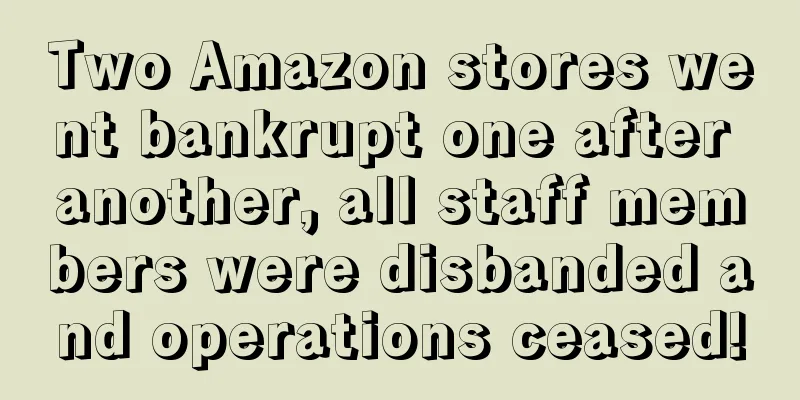How does the Silicon Valley Bank collapse crisis affect the e-commerce market?

|
It is learned that on March 10, Silicon Valley Bank (SVB) declared bankruptcy due to insolvency. This is the largest bank bankruptcy in the United States since the 2008 financial tsunami, and it has far-reaching implications. Even e-commerce companies that have not deposited funds in the bank may be affected to varying degrees. Silicon Valley Bank was founded in 1983 and was the 16th largest bank in the United States before its collapse. For four decades, SVB has become the go-to institution for many e-commerce startups to park their money after a major fundraising. Given that e-commerce startups have historically raised lower amounts of venture capital than SaaS startups, many of them have relied less on SVB than other types of tech companies. Moreover, as competition intensified, traditional banks such as JPMorgan Chase and First Republic also began to launch businesses targeting startups. As a result, e-commerce startups have become less dependent on Silicon Valley Bank over the years, and most e-commerce startups have been able to diversify their funding. Still, e-commerce startups are not immune to the impact. That’s because many aspects of the e-commerce startup ecosystem rely on SVB, and the ripple effects of the collapse will also affect e-commerce companies, from banks to alternative lenders to technology providers. If an e-commerce startup has a key partner that relies heavily on SVB, such as a payroll software company, this could have a ripple effect on them. As more startups took to social media Friday afternoon to discuss how they might be affected by Silicon Valley Bank's collapse, some brands that reportedly did have money parked at the bank were capitalizing on the event. Toy store startup Camp promoted its post-bank closure sale on Instagram on Friday, claiming that customers who used the discount code "BANKRUN" could get a 40% discount. Meanwhile, payroll companies like Rippling and Gusto have also been quick to post notices on social media about how much their payroll services rely on Silicon Valley Bank (or not). Rippling said it had previously relied on Silicon Valley Bank for its payment services, but it accelerated its move from Silicon Valley Bank to JPMorgan Chase after yesterday's news. But until companies that relied on SVB can resolve their own problems, the full impact of SVB’s collapse won’t be determined, and it could cause more companies to miss payroll, including e-commerce businesses. Editor✎ Ashley/ Disclaimer: This article is copyrighted and may not be reproduced without permission. |
<<: Forced into a price war, Overstock digests third-party sellers' inventory in exchange for growth
Recommend
Challenging Amazon and Walmart! Albertsons, the second largest supermarket chain in the United States, launches membership subscription service!
It is learned that recently, the US grocery giant ...
What is Tiu.ru? Tiu.ru Review
Tiu.ru was founded in 2008 and is one of the large...
Labor shortage, rail freight congestion! U.S. supply chain problems further deteriorate!
It is learned that according to foreign media repo...
Open a store for 0 yuan, imitate SHEIN! Is Pinduoduo going global after cutting its prices?
▶ Video account attention cross-border navigation ...
Temu topped the list of US Generation Z app downloads from January to October, with TikTok in second place
It is learned that on November 10, according to fo...
Do sellers need to go to Amazon headquarters for video verification? Only face-to-face verification is accepted!
It is learned that Jungle Scout recently released ...
What is the Kosono cross-border EC service provider? Kosono cross-border EC service provider evaluation
Yanbian Kesunuo Business Information Consulting Co...
What is SocialPeta? SocialPeta Review
SocialPETA is a cross-border platform advertising ...
AMZ123 invites you to meet us, and will give away a large number of BS mouse pads and exquisite peripherals for free!
▼ There are benefits at the end of the article~ C...
What is SellerWell? SellerWell Review
SellerWell is a free tool market platform produced...
COSCO SHIPPING Holdings makes 240 million yuan a day, with an expected profit of 89.3 billion yuan! Are all sellers working for shipping companies?
In 2021, a turbulent year, the hearts of cross-bor...
700 million yuan in arrears! 3,000 suppliers suffered! This Shenzhen seller was repeatedly visited by debt collectors
I believe everyone knows that in September 2020, t...
What is Usuyi? Usuyi Review
Shenzhen Yousuyi Supply Chain Co., Ltd. is a moder...
A large number of shopping carts suddenly disappeared! Is Amazon forcing sellers to lower prices?
In 2023, the price spiral war among cross-border p...
Old links use non-formal UPCs, how can I fix this?
Old links use non-formal UPCs, how can I fix this?...









